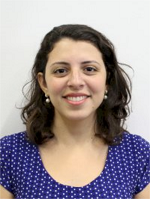Trial lecture - time and place
13th of December, 10:15 AM, Kristen Nygaards sal (5370), Ole-Johan Dahls hus, Gaustadalléen 23B
Ambient Intelligence for Sensor Network
Conferral summary
I denne avhandlingen anvendes, evalueres og sammenlignes state-of-the-art algoritmer for prediksjon av sensorhendelser (events) og aktiviteter, så vel som tidspunktet for når de finner sted, i et smarthus med eldre beboere. Arbeidet viser at det er mulig å lage modeller med tilstrekkelig nøyaktighet ved bruk av et begrenset antall sensorer og relativt små datamengder. Modeller laget med bruk av data fra et begrenset antall leiligheter, kan anvendes direkte for å predikere sensorhendelser og aktiviteter i en ny leilighet uten at man trenger å samle inn nye data fra denne.
Main research findings
A fair amount of research on smart home functions has aimed at assisting older adults in their everyday life. The implementation of these functions relies on the performance of activity recognition and prediction algorithms. The research literature contains a number of well-performing algorithms for activity recognition and prediction. However, most of this work uses data collected in controlled environments (e.g. lab environments) using scripted activities.
This thesis applied, evaluated, and compared the performance of state-of-the-art prediction algorithms in real-world scenarios. The project conducted a field trial including eight smart homes with one resident each, located in a care facility in Oslo for older adults over 65 years old. The homes have about 15 sensors, including motion, magnetic, and power sensors. Probabilistic methods and neural networks were applied to predict the next sensor event and activity of daily living in the home, as well as its time of occurrence.
The work shows that it is possible to achieve acceptable prediction accuracy with few sensors and about three weeks of collected data. Transfer learning between apartments has also shown to be well performing. In addition, the study can be useful for deciding which prediction methods to use depending on the case, and in accordance with project constraints (e.g. the number of sensors, user privacy).
Contact information to Department: Pernille Adine Nordby
